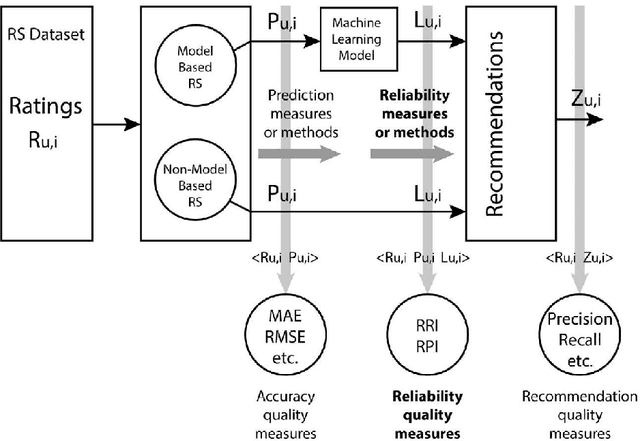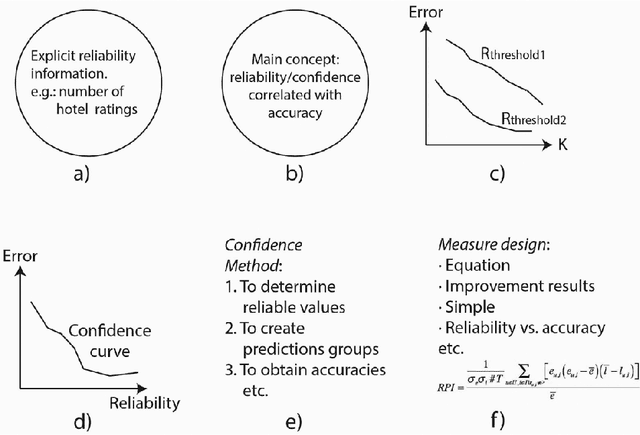Abraham Gutierrez
Comprehensive Evaluation of Matrix Factorization Models for Collaborative Filtering Recommender Systems
Oct 23, 2024Abstract:Matrix factorization models are the core of current commercial collaborative filtering Recommender Systems. This paper tested six representative matrix factorization models, using four collaborative filtering datasets. Experiments have tested a variety of accuracy and beyond accuracy quality measures, including prediction, recommendation of ordered and unordered lists, novelty, and diversity. Results show each convenient matrix factorization model attending to their simplicity, the required prediction quality, the necessary recommendation quality, the desired recommendation novelty and diversity, the need to explain recommendations, the adequacy of assigning semantic interpretations to hidden factors, the advisability of recommending to groups of users, and the need to obtain reliability values. To ensure the reproducibility of the experiments, an open framework has been used, and the implementation code is provided.
* 10 pages, 5 figures
Reliability quality measures for recommender systems
Feb 06, 2024



Abstract:Users want to know the reliability of the recommendations; they do not accept high predictions if there is no reliability evidence. Recommender systems should provide reliability values associated with the predictions. Research into reliability measures requires the existence of simple, plausible and universal reliability quality measures. Research into recommender system quality measures has focused on accuracy. Moreover, novelty, serendipity and diversity have been studied; nevertheless there is an important lack of research into reliability/confidence quality measures. This paper proposes a reliability quality prediction measure (RPI) and a reliability quality recommendation measure (RRI). Both quality measures are based on the hypothesis that the more suitable a reliability measure is, the better accuracy results it will provide when applied. These reliability quality measures show accuracy improvements when appropriated reliability values are associated with their predictions (i.e. high reliability values associated with correct predictions or low reliability values associated with incorrect predictions). The proposed reliability quality metrics will lead to the design of brand new recommender system reliability measures. These measures could be applied to different matrix factorization techniques and to content-based, context-aware and social recommendation approaches. The recommender system reliability measures designed could be tested, compared and improved using the proposed reliability quality metrics.
 Add to Chrome
Add to Chrome Add to Firefox
Add to Firefox Add to Edge
Add to Edge